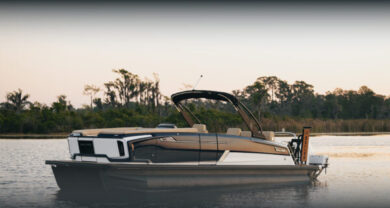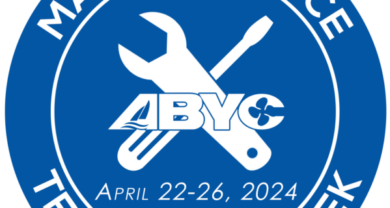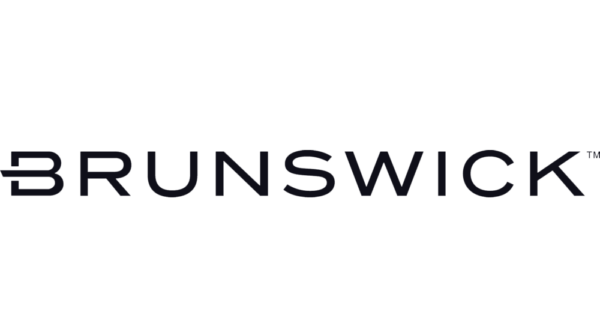Boat Care Products Can Be Source of a Valuable Revenue Stream
The current downturn in boat sales has not hit all portions of the boat industry. As owners hold onto their vessels instead of buying newer models, boat care becomes more important, providing an ongoing revenue stream for boat dealers.
TRAC Ecological Marine Products reports a 40 percent sales increase so far this year, says Kevin Greene, CEO of the company, based in Fort Lauderdale, Fla. “Although the new boat market has been hit rather hard, there are still a large number of vessels out there that need to be cared for,” Greene says. “This, combined with the ever-growing desire of boat owners to use ‘green’ products, we feel puts TRAC Ecological in a great position.”
Boat care products can provide a healthy revenue stream for dealers, with gross profit margins of 40 percent or more, notes Marianne Iosso, vice president at Iosso Products, Elk Grove, Ill.
“For the boat care market, the time is right for the retailer to expand into this area, put some care items in the store and make some easy money this way,” says Iosso. Working in conjunction with a manufacturer, the dealer can avail himself of samples, display options and incentive programs to make stocking care items attractive.
This is also an ideal time for dealers to talk up maintenance issues that can increase ongoing sales, says Mark Silvey, owner of Marine Services in Newport Beach, Calif. One of the biggest challenges is the lack of training and mentoring around the issue of long-term maintenance and care of private boats for both owners and service providers.
“Few private-owner boats have any real quality, long-term ongoing maintenance program,” Silvey says. “Most are wait until it breaks!”
Proper fuel care remains another challenge, notes Carl Hammonds, president and CEO of Hammonds Fuel Additives, Houston. “By and large, the industry doesn’t understand the chemistry of marine fuels, specifically, what constitutes optimal fuel quality, fuel specifications, the care and feeding of fuel, how contamination occurs,” says Hammonds. “People believe what they want to believe, and much of the pervasive thinking is incorrect.”
Nautical Technologies Inc. President Jim Beardslee sees the boat care industry as a microcosm of the marine industry as a whole. Many boats remain in storage because of high fuel prices, the uncertain economy and adverse weather conditions in many parts of the country. As the market tightens, the challenge for manufacturers is to get dealers to stock, and owners to buy, their products, as opposed to competing products.
Maintenance vital to continued use
Even with diminished use, mechanical and cosmetic maintenance are vital components to boat enjoyment, says Carol Albanese, founder and CEO of Seattle-based Mer-maid Products Inc. She believes that smaller, more nimble suppliers can move more quickly than larger companies to meet the challenges of the current economy and bring out products that appeal to the boating community.
An easy way to keep the customer coming back is by selling products that the customer will use up, prompting return visits, says Iosso. Dealer recommendations go a long way to help customers make informed, confident choices, so she urges marine dealers to try the products for themselves. Products from Iosso help owners keep their boats looking good and last longer so, in the long run, they provide an added value to the customer while helping reduce warranty issues, the company vice president says.
With fuel prices near record highs, anything that will help a boater improve fuel efficiency should sell well, contends Bill Lindsey, vice president of marketing and advertising at Star brite, Fort Lauderdale, Fla. “Our goal every day is to help boaters get more enjoyment out of their boating experience, spend less money in the process and thus stay out on the water,” says Lindsey, pointing to the company’s Star Tron enzyme fuel additive and two- and four-cycle motor oils that he says are equal to, or better than, OEM oils costing twice as much.
Star brite also supports retailers by advertising on such national TV programs as “Ship Shape TV” and “Two Guys Garage,” in addition to print advertisements in a number of boating publications. This year the company launched a series of Star brite Solutions ads that focus on how to deal with common maintenance issues and another series on how Star brite products help consumers save money while using their boats.
Hammonds’ Biobor JF kills micro-organisms that feed on hydrocarbons in marine fuels and was originally developed for the aviation industry – an industry known for high fuel performance standards and delivery demands.
A host of ‘green’ products
Manufacturers are bringing out quality products that are environmentally friendly, in response to the changing marketplace. Marine Services, for example, has released what Silvey calls “the only ‘zero petroleum,’ nanotechnology, true protection, boat polish on the market today.”
Greene, from TRAC Ecological Marine Products, says the rest of the market is playing catch-up to what the company always has done. “From the beginning, TRAC has always been an environmentally friendly chemical manufacturer,” says Greene. “This puts us in a great position to support the green movement. Rather than supplying new and untested products, our products bring years of proven success. This gives the purchaser peace of mind.”
Iosso Products also manufactures a line of green cleaners that the vice president says works well. Star brite recently introduced an improved SeaSafe line of biodegradable boat cleaning products that allow boaters to clean the entire boat from the bilge to the deck using products that are effective, yet won’t damage the marine eco-system. The company uses cutting-edge biodegradable technology in the manufacture of the bottles.
“New products are important to the industry because, hopefully, they will make the consumer’s boat maintenance easier,” says Beardslee from Nautical Technologies. “Product innovations come with newer chemical technology as in making finishes last longer and cleaners clean faster with less work.”
Robert L. Hawie, president of So-Lo Marine, Bridgeport, Conn., agrees on the importance of new product innovations. “There is not a lot to innovate on a brush or a swab,” Hawie says. “Innovation needs to be realistic and helpful to boaters.”
A company’s reputation in the marketplace cannot be overlooked, says Albanese. The company’s cleaning products are tested where feasible by the manufacturers of the products. For example, Sunbrella manufacturer Glen Raven Mills tested and approved the company’s canvas cleaner, while the makers of Lexan acrylic and Plexiglas tested and approved Mer-maid’s plastic cleaner. Albanese believes that testing brings a loyal customer following.
The advantage of a smaller company is its ability to bring products out quickly in response to consumer demands, says Iosso. The company has its own R&D department, with in-house and field testing, and Iosso Products focuses on specialty products. As Iosso says, “We look for an area that is lacking, and come up with an innovative product that really works.”




